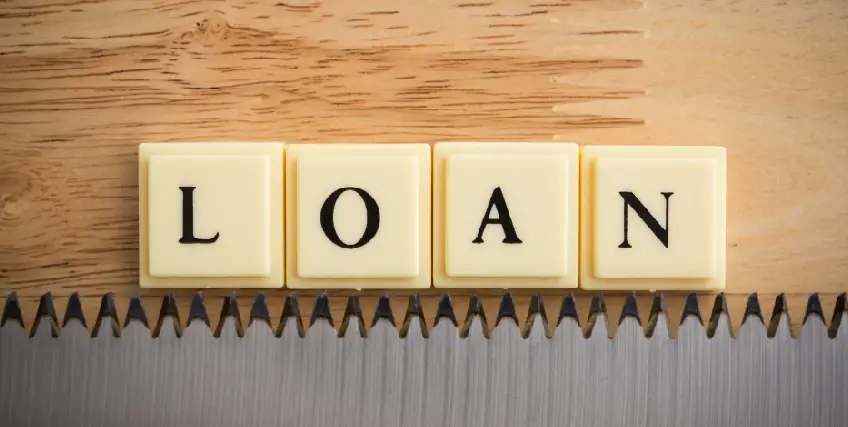A Step-by-Step Guide to Qualify for an SBA Unsecured Business Loan
December 19, 2024 | Last Updated on: December 19, 2024

Unsecured small business loans are lending facilities that don’t require collateral. While secured business loans require a borrower to provide collateral, like business or personal assets, that the lender may seize if they default on the loan, an unsecured loan has no such requirement. Unsecured business loans are valuable for business owners who need financing but lack assets or don’t want to risk losing assets by using them as collateral.
The United States Small Business Administration (SBA) works with lenders to partially guarantee small business loans, lowering the risk of lending to borrowers. Most SBA loans require collateral and have significant eligibility requirements. However, that’s not always the case.
In this article:
- Details about SBA loan programs and how they work
- How to get an unsecured SBA loan
- A breakdown of the SBA application process
What is an SBA loan?
An SBA loan is a small business loan backed by the federal government. There are several SBA loan programs, from the most popular 7(a) term loans to microloans, working capital loans, and business lines of credit. Businesses can use these loans to cover startup costs, working capital needs, expansions, equipment or real estate purchases, and virtually any other business need. In 2024, the SBA backed $56 billion in loans to American small businesses.
SBA loans work similarly to traditional small business loans. The process typically includes:
- You apply for a loan through a bank, credit union, or online lender.
- The lender applies to the SBA for a loan guarantee, which may be up to 85% of the loan.
- The SBA requires an unconditional personal guarantee from everyone with at least 20% ownership in the company. Importantly, a personal guarantee is not collateral; it just means that you will have to pay back a loan out of your own pocket if your business can’t make payments.
- Once approved, your lender underwrites and closes the loan, disbursing an upfront, lump sum payment to your business checking account, minus origination fees. The best SBA lenders typically process SBA loans in 30 to 90 days.
- Your business repays the lender directly, usually with monthly payments plus a fixed rate of interest, but it depends on the loan repayment terms.
Because the SBA assumes a large part of the risk, lenders are willing to lend to more borrowers, making SBA loans for new businesses more attainable for borrowers who cannot otherwise find loan options due to bad credit or other reasons.
All SBA loans require personal guarantees, and many require collateral. However, unsecured SBA loans do exist.
How do you qualify for an SBA loan?
The qualification requirements for an SBA loan are usually stricter than other business financing options. Minimum credit score, annual revenue, and time in business requirements vary depending on the lender, but the base qualification requirements typically include:
- Several years in business
- Good credit history
- Must be a for-profit business operating in the U.S.
- Business owner must have invested equity in the business
- Must be able to demonstrate a need for financing and show how you’ll use the funds to address business needs
- Must be able to show your creditworthiness, or your ability to repay the loan
- Must be a small business as defined by the SBA
- Must have attempted to get financing from non-government sources before an SBA application
The SBA microloan program is the least restrictive of SBA loan programs. These loans offer business funding up to $50,000 and don’t require collateral. If you’re looking for an unsecured small business loan or an SBA loan for new business, microloans are typically your best bet.
Additionally, the 7(a) loan program also doesn’t require lenders to accept collateral on loans up to $50,000. The SBA states that for loans between $50,001 to $500,000, lenders “must follow the written collateral policies and procedures that it has established and implemented for its similarly-sized, non-SBA guaranteed commercial loans; however, a loan is not to be declined solely on the basis of inadequate collateral.”
How to get an unsecured SBA loan
Unsecured small business loans reduce the risk to your business. While they may come with higher interest rates, getting one might not be as difficult as you think, especially if you don’t need a large loan amount.
Here’s the step-by-step process to get an unsecured small business loan from the SBA:
Make sure your business qualifies
Ensure your business meets the SBA requirements posted above and you have a strong enough personal credit score or business credit score to avoid a collateral requirement. If your business is struggling or falls into an ineligible category, like gambling or political lobbying, you should not apply.
Choose a lender
The SBA’s Lender Match tool makes narrowing your search easier, including if you’re only looking for banks that offer unsecured small business loans. This tool matches borrowers with potential lenders in two days.
Once matched, you should vet your potential lender by looking at customer testimonials, researching their reputation, and asking about how many SBA loans they fund each year. It’s good to get a sense of their experience and the types of loans they typically approve to ensure they’re right for your situation.
The best SBA lenders have experience working with the SBA and offer unsecured small business loans to borrowers like you.
Gather your documents
SBA loan applications vary depending on the loan type, but usually you’ll need:
- SBA’s borrower information form
- Business plan for how you’ll use the money
- Statement of personal history
- Personal financial statement
- Business financial statements
- Personal income tax returns
- Business tax returns
- Business license
- Loan application history
- One-year cash flow projection
In addition to these documents, you’ll also have to submit to a credit check as any loan is subject to credit approval. The process will go more smoothly if you have all of your documentation ready when you apply.
Submit the application and wait
Finally, all you can do is wait for approval. SBA loans are not usually known for fast funding. Depending on the lender, the time from application to funding may range from 30 days to a few months, especially if you’re applying for an unsecured small business loan. Lenders want to be absolutely sure you won’t default on the loan if they’re going to let you have the money without collateral.
Conclusion
Whether you’re a brand new business or you don’t want to stake valuable business assets to secure a loan, an unsecured business loan can help address business needs with reduced risk. While most SBA loans require collateral, loans under $50,000 often do not. Ultimately, the terms depend on the lender.
FAQs
What is an unsecured loan?
An unsecured loan is a loan that does not require collateral. While most small business loans require the borrower to offer business or personal assets as collateral that may be seized by the lender in the event of a default, unsecured loans do not have this requirement.
What is an SBA loan?
An SBA loan is one that is backed by the U.S. Small Business Administration. These government-backed loans partially guarantee a loan up to 85% of the full amount, reducing the risk to lenders and incentivizing them to approve more borrowers.
Are all SBA loans unsecured?
Most SBA loans require collateral, but it’s ultimately up to the lender to decide whether or not collateral is necessary. Loan amounts under $50,000 often do not require collateral.
Who are the best SBA lenders?
The right SBA lender for you may not necessarily be the right one for somebody else. That said, Newtek Bank, Live Oak Banking Company, and The Huntington National Bank were the lenders that approved the most SBA loans in 2024.
What are some other unsecured funding options for small businesses?
The most common types of unsecured financing for small business owners include business credit cards, unsecured business lines of credit, and cash advance products like merchant cash advances (MCAs) or invoice financing.
Frequent searches leading to this page
sba loan for new business, sba application, best sba lenders, unsecured sba loan




